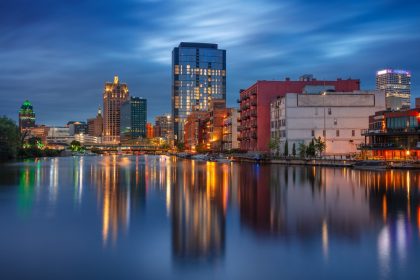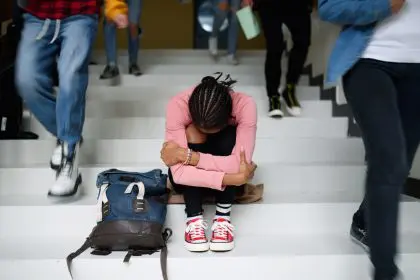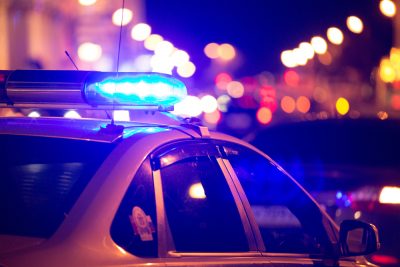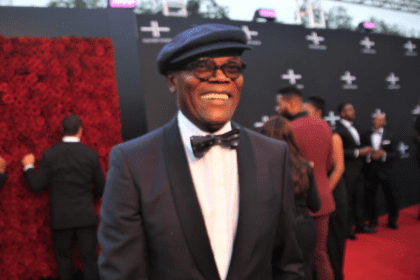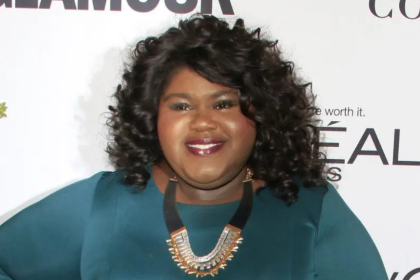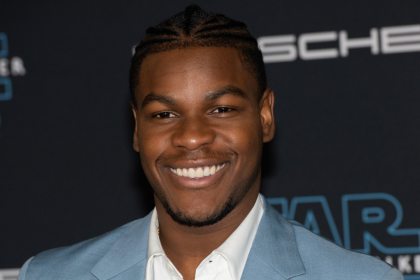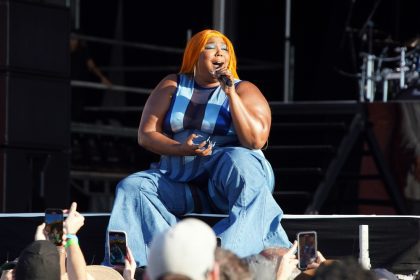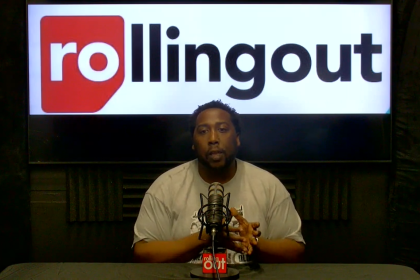
As Americans usher in the new year and bid farewell to 2014, we should renew our commitment to continue to fight for liberty and justice, especially for the group most assailed in this country over the past year, young Black males.
The fatal shooting of unarmed Black teen Michael Brown, singled out for the “crime” of jaywalking, and whose hands were raised in surrender, was an act of modern-day lynching. The killing of Black husband and father Eric Garner, who had not been adjudicated guilty of a crime, but whose execution was carried out on the streets of New York in the form of choking, is categorically capital punishment — a death penalty — which should only be carried out by judicial decree.
It’s unthinkable that these civil and human rights crimes are being carried out behind Lady Liberty’s back. The Statue of Liberty, as she is formally known, is our gift from France and has served as a universal symbol of democracy and freedom since 1886. The hollow copper sculpture is an icon that inspires “contemplation, debate and protest of ideals such as liberty, peace, human rights, abolition of slavery and opportunity.” She occupies Ellis Island and stands alone at the gateway of the proverbial American dream that has arguably turned into a nightmare because our nation is potentially divisible and there isn’t always liberty and justice for all.
In this issue, rolling out editors collaborated with cultural iconoclasts, critical thinkers and activists who play pivotal roles in the “beyond the ‘60s civil rights movement,” including Brooklyn-based speaker Kevin Powell, rapper Chuck D, professor Eddie S. Glaude Jr. and poet Asha Bandele to share their assessment of the state of America and how we can begin healing.
These are their perspectives. –yvette caslin
Kevin Powell on protesting for change and hip-hop’s response to Eric Garner and Michael Brown

Kevin Powell, a hip-hop activist, author and founder of BK Nation, recently spoke to rolling out about the injustices that have taken place in the cases of Eric Garner, Michael Brown and other unarmed Black males who were killed by police.
Powell shares his thoughts on the recent protests and the hip-hop response. –a.r. shaw
Let’s go back to the night when we all learned that officer Darren Wilson would not be indicted for killing Michael Brown. For you, what do you remember most about that night?
Unfortunately, I expected it because I had gone through the experience a year before with the Trayvon Martin verdict in the summer of 2013. It’s a sad commentary on the state of this country, on the criminal justice system. I was out there in Ferguson back in August working with a lot of people. Younger people, older people, people of all backgrounds and races and cultures just trying to figure out how we can get justice with this indictment. When I learned that District Attorney Robert McCulloch would be the prosecutor for the case, and his relationship with the local police, I knew it was going to be problematic right from the very beginning. I don’t think local DA’s should be dealing with cases about racial profiling. I think that special prosecutors should be appointed for each state. So, in a lot of ways, the people were deceived in Ferguson into believing that there would be some form of justice.
One week after the Michael Brown failed indictment, we received more bad news with the Eric Garner case and a lack of indictment. What was the scene like in New York that night?
It was very tense here in New York. We were on edge because of the verdict with Michael Brown out in Missouri. So we were somewhat again expecting the same result. People were prepared and very proud of how we organized in New York City. Black people, White people, Latino people, Asian people, a lot of younger people, definitely some older folks as well. It has just been this incredible wave of protests. This week alone, I’m participating in three different town halls with mostly young people with different backgrounds here in New York around the issue of justice in these cases. We have Michael Brown there in Ferguson, Eric Garner here in New York, and now we’re working with the Akai Gurley family. Akai is a young black man who was shot by a police officer three weeks ago in a housing project stairwell. The police commissioner and the mayor said that he was innocent, he wasn’t doing anything wrong, and that it was a horrible tragedy. But we’re saying that if you really believe it was a horrible tragedy, what are you going to do in terms of justice? And why is it that these officers over and over again are suspended with pay? Their guns, often times, are not taken away from them and ultimately with these lack of indictments, the grand jury is sending a signal to people that this is not really justice for all.
What are your thoughts on how protests have been carried out thus far?
I believe in peace and love and nonviolence. That’s my position and that’s where I come from. However, because I’m an activist and I’ve been an activist for a long time, I’m not going to stand around and tell people, especially younger people, you should just be calm, you should just not be angry. I think that is absolutely insane for people to say that to folks and some of our so called established leadership, that’s the first thing that comes out of their mouth. But you don’t hear them telling the police department that they need to be calm and they need to not be angry, they don’t need to be violent. But they’re saying it to our community, especially to young people. So I understand. I think if you’re going to be a leader or an activist or someone who cares about our communities, you have to understand the psychology of our communities. So if you come from a world where you have terrible school systems, limited life opportunities, there’s barely any work for you, and you’re consonantly harassed by the police in your community. If someone gets killed in your community, you’re going to be angry. Dr. Martin Luther King said that, “a riot is a language of the unheard.” The only thing that I can say is that we need to understand the difference between proactive anger and reactionary anger. Proactive anger means that we’re going to take all this emotion that we feel and we’re going to operate and create strategies. Proactive anger means that you build or sustain organizations or businesses or institutions that support our community. Reactionary anger is that you just complain about what you don’t like. My challenge is, we should have those emotions. It’s a justifiable anger, a justifiable rage, but are you going to be proactive with it or are you going to be reactionary with it? Let’s build something.
We’ve had several rappers who have spoken out recently. But overall, have hip-hop artists done enough to respond to the injustice of Michael Brown, Eric Garner and others?
Part of the problem is that there has been a dumbing down in America across the board in the last 20 years. Our music, our film, everything. The culture has been dumbed down. Reality TV shows, all of it. So there’s an obsession with being famous, there’s an obsession with money and materialism. It’s extreme individualism and people, Bono of U2 once said, ‘We need to understand the difference between social justice and charity.” Charity means you just give money to people during the holiday season and you feel good about it. But if you actually practice social justice, it’s in your bones and no matter how famous you are, no matter how rich you are, no matter how many records you make, you don’t get caught up in the fact that it’s just about you. You have a responsibility with that platform to provide information and resources and service to people to use your platform to speak out against injustice. The problem in the hip-hop community, which is one of the communities that I’m a part of, is that people will say all kinds of stuff about each other. Look at how many diss records we’ve produced just in the last couple of years alone. Everybody has got beef with each other. Look how we talk about each other in our records and rap about how we’ll blast this one and blast that one. But it doesn’t take a lot of courage to say you’ll beat up someone who looks like you. But it takes courage to challenge the power structure. A lot of people in our community are too cowardly to do that. I’m not impressed if you have beef with someone in your hood or have a beef with someone who is a fellow rapper. I’m impressed if you have the courage of a Marvin Gaye and say I’m going to make an album like What’s Going On. Even the athletes have more courage than some rappers. Look at what the St Louis Rams players did. Look at how all of these basketball players are wearing “I Can’t Breathe” T-shirts. You mean to tell me that someone who puts out a record, who has all of these followers on YouTube, Twitter, and Facebook, can’t say anything? There’s something wrong with that.
How should we all move forward to make sure these injustices don’t happen again?
There has to be serious changes in this country because racial profiling has become the modern day lynching. There’s too many Black and Latino males who have been the victims of this all around the country over the last several years. It’s not like this is new. Again, when I was a youth in the 1980s, Michael Stewart, Eleanor Bumpurs were murdered in New York City. Let’s not forget Rodney King in 1991 that was caught on video tape. But it seems like in this era of President Obama, the conservative right wing in this country has become so bold and so anti-Obama and so anti-people of color that it seems like it has been this acceleration of attacks on us. It’s on a level of what you saw decades ago when you had Black soldiers coming from World War I who were lynched in their uniforms. After they had fought for this country oversees, you’re going to kill someone in their uniform, representing the country that you claim to love? So I believe that just like back then when we had to be vigilant and organize in a very serious way, that’s what needs to happen. I think that’s why these protests are not stopping anytime soon. People are like we have had enough of this. Stop telling us this is a democracy when it’s clearly an oligarchy. Stop telling us this system works for all of us, when it doesn’t. There is something wrong with a country that goes all around the world and tells people how they should organize and run their countries, when they can’t even do justice by the people who are tax paying citizens in their own country. It’s blatant hypocrisy. So the only thing that’s going to change that hypocrisy is that all people have got to be consistent in organizing non-stop to change these laws. It’s not just racial profiling, it’s the voter ID laws, the stand your ground laws. The same people who are putting forth the voter ID laws around the country and the stand your ground laws around the country, are the same people who are out there pushing and supporting an atmosphere that creates racial profiling. It’d the same exact people and we know who they are. … So we’re saying to the old guard, your day is over, man. You can’t continue to hold on to the stuff that is about dividing and destroying people. It is unacceptable in this country and on the planet and we ain’t going for it anymore.
Princeton’s Dr. Eddie Glaude on Mike Brown, Eric Garner and racism in America

Princeton University’s Dr. Eddie Glaude recently sat down with rolling out to share his thoughts on Michael Brown, Eric Garner and racism in America. –a.r. shaw
The nation has been rocked by the grand jury system in Missouri and New York that failed to indict the police officers who killed Mike Brown and Eric Garner. What have the last two weeks been like for you?
They’ve been a kind of roller coaster and tugging on a variety of levels of emotions. So the first thing involves my own worry as a parent. You know I have a young son who’s a freshman in college at Brown University. He had his own experience recently with the police in which his body was in the wrong space and they let him know that with their hands, and guns, and tasers. One type of response for all of this is concern for my child. I’m sure every Black parent, mother and father out there, has a level of concern, that they’re worried about the safety of their child. The second level of concern was, I had been in Ferguson when all the lights were off. I went down to Ferguson for my own research and my own interest along with a colleague and we met with some of the extraordinary activists down there. They were preparing for what they called the Non-Decision. Of course I was worried about Black America generally. We had to bear so much over the years. Here you have a generation of young folk who are confronting the brutal reality and the brutal truth of White supremacy that White people have more power in this country than others.
We’re at a place where this almost seems like a cruel joke. What was the emotion that you felt after hearing the Eric Garner decision?
Rage. I just participated in a walkout with the students here at Princeton. It happened today. Just find some kind of way to give voice and expression to what’s going to be described as rage. Yesterday, I could not believe that the grand Jury had come to that conclusion. It proved, at least for me, that body cameras on police officers are not the answer. It’s something that cuts so much deeper. That in some ways it’s open season on Black folks. So the reaction was just pure anger. That’s a human reaction. No matter how many letters you have behind your name, if you care about folks and care about Black folks, care about young folks, care about the state of your community and the state of the nation, then you need to be angry right now.
What are your thoughts on the controversial comments by Charles Barkley and Dr. Ben Carson?
Two things happen almost simultaneously. One is I think their comments are silly. Their claim is silly. The second point is Black America is not monolithic. People have different views. People come to different conclusions for a variety of reasons given their interests and given their commitments. I’m not suggesting that we should all react similarly because we’re Black. That would be silly as well. One of the things I do suggest is that no matter what your political position, no matter what your ideological orientation happens to be, you need to look the facts squarely in the face and at least express deep empathy with those who feel a serious miscarriage of justice. Even if you disagree, be open to debate. Be sensitive to other people’s emotions. When Black folk gets angry, we step outside of the orbit of White folks’ expectations. Whenever Black people step out of the orbit of White people’s expectations is the threat of chaos. I loved Charles Barkley as a basketball player. But that doesn’t qualify him to be intelligent in nuance about political matters. But I think there should be some attempt to understand the degree of rage and anger. When you don’t have any kind of empathy, even when the facts are contested, even when you have contradictory testimony, contradictory forensic evidence, people are siding with authority and siding with power. They want to make that seem as if it is self-evident that it’s true. Then you just say Barkley just doesn’t know the facts. In terms of White cops are coming out here trying to kill Black folks. On a certain level, he’s just wrong. The same thing can be said about Dr. Ben Carson. Once people kind of hold these positions that you know are blatantly incorrect, then you have to say well what are your motivations? What are you trying to do at this point?
When the St. Louis Rams players showed support for Mike Brown, a group of police in St. Louis spoke out against their support. Are police across the nation not doing enough to speak out against the murders of unarmed Black men?
I think that people make the distinction that there are good cops and bad cops. But you have this kind of code, these people bleed blue. So you hear silence with regard to what arguably are just horrible acts on the part of their colleagues. I’ve heard, I’ve seen former law enforcement agents/officers say that what happened in Cleveland to Tamir Rice, police officers just driving straight up near the gazebo and just getting out of the car shooting, that it didn’t make any sense, that it’s bad training. In terms of the chokehold placed on Eric Garner, in terms of the odd number of officers used to bring him down and once you hear him say I can’t breathe, the fact that he didn’t relent was an example of bad training. See part of this has to do with the presumption that somehow because you have a badge because you’ve been authorized to use a gun or to protect and serve, that somehow you stop being human, that you can’t make mistakes, that you don’t have your own biases. We have officers running around here with PTSD trying to protect and serve. So part of what we have to remember is that officers are human beings and to the extent to which they are in stressful jobs, to the extent in some cases they are risking their lives. Those stresses can impact their judgment. It seems to me that if people were genuine, if people were serious, that they would be condemning it without hesitation. The athletes for the St Louis Rams came out with their hands up. That is 100 percent consistent with democracy, 100 percent consistent with free speech. The fact that the police department is trying to censor it suggests to me that for some people democracy has its limits.
Chuck D opens up on the NYPD tragedy, protests against racial injustice, and hip-hop’s role in the new revolution

Chuck D has served as the voice for hip-hop for more than 25 years. He continues to be vocal on issues that affect the Black community and hip-hop generation.
With the ongoing protests over violence against unarmed Black males at the hands of police, and recent killing of NYPD officers, it was imperative that we reach out to Chuck D.
During an interview with rolling out, Public Enemy’s lead emcee shed light on the NYPD tragedy, the protests for equality, and how the hip-hop generation can move forward in the new revolution. –a.r. shaw
We are in a tense moment in time. What were your initial thoughts when you heard about the two NYPD officers who were killed by a person who claimed he was seeking revenge for the deaths of Eric Garner and Mike Brown?
Tragic. It’s tragic and you hope that your fight is righteous. I know on social media, people were talking about was there karma going around. I don’t know if karma speaks for somebody who just got some crazy thoughts in their head. So I wouldn’t call that karma, I would call that just a bad action. You can’t weigh that as being a positive point for a movement. It’s just what you call a bad tragic side effect.
With all that has happened in 2014, how do we make sure that we continue to remain focused on fighting injustice?
Revolution is not an event, it’s a process. As Black folks, we need to look at ourselves as a union because we will not be united if we don’t look at ourselves as a union. I don’t mean tying ourselves emotionally together. It has to be beyond emotion. I’ve always said this for a long time. The government systems of the west, if Black folks in the United States don’t link and lock up with the diaspora, then we’ll forever be slaves in the USA surprised by the same old tactics that they have been playing for the last 250 years. You got a lot of the same tactics in different faces. People born in the 1970s, ‘80s, and ‘90s are being victims of the same bull—- that’s been around for 100 to 200 years. So if we don’t lock into the diaspora, if we don’t lock into the history of struggles and we don’t really link into the stories of these people who struggle with their lives and apply it to where we have to go in the future, then you know we’re going to be in chains. Right now, what we’re seeing is the rebellion to the chains. You have to figure out how to break that chain and connect to somebody that might help you release that chain. We have a lot to learn from our elders, our pioneers, and our past our history
Eric Garner was choked to death for essentially trying to earn a dollar. How did his death reflect the suppression of a Black person seeking ways to earn income?
He was a Black man trying to make a dollar. They aren’t trying to have anybody actually make a dollar. I don’t call the USA America, because there’s South America, North America, and Central America and the Caribbean. We got other countries that we have to consider too. We make mistakes with our history and our geography. We have our history, we have our geography, and we have our story, then it makes movements at least more connected and united. When we don’t have history and geography on our side, then we continue to do the same thing over and over again, but even worse. The diaspora is very important because it locks you in to struggles of people who actually were the same and looked the same, so there shouldn’t be any surprises. Also, I feel we need more thinkers because thinkers are leaders. I said this in social media the other day. I said, when you have a lot of people who feel they want to rebel and revolt and you don’t have any generals, then the people just turn into a heap in the heat. So you need thinkers and people who are able to see the whole, total picture. Because if it came down, are we prepared if we’re not united? This guy who is on the borderline of crazy goes and kills two cops and thinks that’s going to even the score. No, it can make it really unjust and very tight. They’ve already built facilities in this country that are able to fit five million people. They’re at almost three million now; where you do think they’re going to get the other two million? So you always need thinkers and elders. That’s very important to pay attention to because if you have a movement, it’s like football. You’re making a whole bunch of lateral moves and they’re even getting thrown back a couple yards, and it looks like you have a game. Then they change the rules on you, then what? So sometimes that hail Mary desperation will make someone think that they can even it up. But that’s an individual thought. Individual thoughts can set you backwards.
How has the hip-hop community responded to the Eric Garner and Mike Brown protests? Can more be done?
The hip-hop community has tried because individuals have tried to tell a story, but a lot of the people have felt that the story ends at the end of their lips and you don’t have bigger sources able to pick that up and spread the story. What we’re going to do at RapStation.com, where we have 10 stations, we’re going to create a station called Anthem Tone Radio. We’re going to have that be the first hip-hop station to have just positive uplifting conscience music. Everybody that seems to make a statement about Ferguson or Eric Garner and everything else that’s been happening, we’re going to find a place for their music and their songs. That’s what I can do artistically as a culturist. We already do beyond what anybody else can do at RapStation.com by just by being able to air people’s opinions and their music.
When considering different media platforms, there is a dearth of Black people who are hired by Facebook and Twitter and in Silicon Valley overall. How do we increase the presence, or should we focus on building our own?
Like I said in the beginning, when we as Black folks limit ourselves to the USA and don’t connect with the diaspora, we’re bound to be chained to its law and its rules, even down to our story. That’s why we always have to thank those that paved the roads in television and radio in the past and not just be foolish with it like we have become. Now you see black people on television, you hear black folks music on the radio. It’s coming through the filter of being accepted for somebody else based on money. We weren’t always based off money. That’s why you always have to give a salute to Munson Steed and rolling out because what we do have is print and multimedia. So we get the true story and you have some leadership when you have people that are able to edit on your behalf.
What will be the big agenda for the next generation of Black Americans?
I don’t think individuals can make it. Not in this millennium. Individuals are reduced by the radiation of White supremacy like you wouldn’t believe. So as much as they applaud individuals for making that money or making that business, individuals are actually the reduction in any kind of Black consciousness movement. Once you’re individualized, then they can throw a focus on you and then reduce you. So I think the whole thing is how do you actually become unionized with each other and then stay connected as a union? We’re at the bottom of the barrel as far as a social cluster of people because we’re all over the place. But we have to be unionize just to be able to demand that respect to be a part of the human family of the Earth and the human family of the Earth doesn’t see any color. It’s like we’re human beings. That’s how it should be. But governments have altered that, categorizing human beings and individuals and the clusters where they can control. So I think young people should understand that the diaspora adds another category of answers that they might not be able to pull out of the USA’s hat.
With the recent change in the relationship between America and Cuba, some have called for Assata Shakur to be returned to America to finish her prison sentence. What are your thoughts on Gov. Chris Christie’s open letter to President Obama urging that Shakur be returned to America?
There’s always an adversarial point of view that’s always trying to get brownie points for becoming the next John Wayne of the government. So what would we expect Chris Christie to say to try to get him brownie points as a governor? He doesn’t have to agree to how we feel, but we don’t have to agree to how he feels.
What do you think will happen with the Assata Shakur case?
That’s not for me to say. I’m just trying to be fair so when my words are printed out there, they’re concise, they’re clear, and they give somebody the energy to go forward and not back. I could be pessimistic, I could put a lot of s— out there. A lot of people say, “You should be out here fighting the power.” I just fought the power 28 years ago. I’ve done a lot of things since then and I’ve said a lot of things. You can’t turn revolution on and off like a switch. It’s a gradual movement of people coming together. It goes beyond you. How are you going to figure out how to take care of your children, your family, your property, and how do you get a bunch of people thinking the same way to be able to be forward thinking and not falling victim to the stupidity and foolishness that might take us back? Everybody is not equipped for that. But everybody is not equipped to deliver bull—- either. You have to check a lot of that because bull—- sometimes hurts a lot of us.
Asha Bandele talks ‘Black Lives Matter,’ why we can do anything

Asha Bandele, author, journalist, poet and director of Advocacy Grants Program at Drug Policy Alliance, is a former Columbia University Revson Fellow who earned her B.A. at The New School and her M.F.A. at Bennington College. She has spent much of her career documenting issues of social concern through her work as a journalist.
To date, she’s penned five books, including the award-winning memoir, The Prisoner’s Wife, and recently finished her fifth, another memoir about raising a child who has an incarcerated parent.
Here, she shares statistics on the criminalization of black men, the origin of the phrase “Black Lives Matter” and its impact. –tj crawford
What is your opinion on the statutes of liberty given the current state of affairs in America today? What is your opinion about the state of freedom for Black people in particular, and Americans in general?
My own sense is that in varying degrees of intensity, the ongoing and consistent relationship Black people have to this nation, is one of containment — of our bodies, our minds, our spirits. The fact that we are still here and with a profound connection to love and life, is one of the greatest stories of survival never told. But our relationship with America, beginning with slavery, continuing through the era immediately after which gave us the Black codes — a legal method through which we were re-enslaved — and then Jim Crow, which when it didn’t outright kill us, kept the majority of us, legally, from living outside the confines of abject and generational poverty and social degradation. With the end of Jim Crow, Nixon declared the modern war on drugs, which in its 40 years of targeting Blacks who use and sell drugs less than our White counterparts, has incarcerated more people in the last 40 years than all of the people imprisoned since this nation’s birth. So as the targets of 250 years of public policy that meant to destroy us, and as we see that 40 percent of our babies awaken each day in deep poverty, and in some states, our brothers are targeted for incarceration at more than 80 times the rate of their White counterparts who are choosing the exact same behaviors; and, of course, when we see Black women and men shot and killed for just living and wearing a hoodie, or needing help after a car accident, no, I don’t think we are near free. But yes, I know we will be. Any people who can survive the onslaught we have, can do anything.
What does the Black Lives Matter protest movement mean to you? How do you see it in its current form and what, if anything, do you expect it to accomplish?
Black Lives Matter, originated by three Black women, Patrisse Marie Cullors, Alicia Garza and Opal Tometi, originated before unarmed college student Mike Brown was shot down in the street while his hands were raised, by White cop Darren Wilson, and before father, son, husband and peacemaker [Eric Garner] was choked to death in the street where he begged for his life. Patrisse would say that this movement is about us, looking at us, loving us, in the face of a nation that that in myriad ways harms Black bodies. In the face of that harm we stand together and look at one another with love and say, Your Life Matters to me. It reminds of the scene from Beloved where Baby Suggs holds church in the woods and reminds us, even as we were enslaved, to love ourselves, our hands, our everything. #BlackLivesMatter speaks to the core of everything I believe.
What message would you like to send to readers of this story? Is there anything that you would like people to be mindful of, pay attention to, or take action about? Why?
I would ask us to take care of ourselves and each other, to recognize the stress we are carrying from fighting and struggling for more, for a livable world, and remember to stand in patience with one other, to stand in integrity, to admit when we don’t know something, to seek to correct our wrongs, to bring peace to the maximum extent we can into the heart of chaos, to remember to read and know our history, where as Minister Malcolm reminded us, our studies will be rewarded.
Stories by Yvette Caslin, A.R. Shaw, T.J. Crawford
Illustration by Kareem Kenyada



